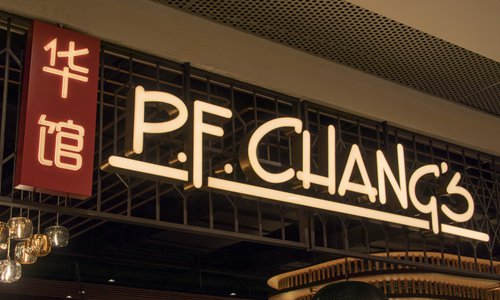HOME >> OPINION
Chinese restaurants should seize upon US demand for real-deal cuisine
By Rong Xiaoqing Source:Global Times Published: 2019/6/24 16:58:39

Photo: IC
"Cultural appropriation" has lately become a hot topic among Chinese foodies in the US, which is surprising. Not that I've never heard rants from others who felt their culture had been stolen from them without receiving any acknowledgement. Criticism from former NBA Brooklyn Nets' Kenyon Martin against point guard Jeremy Lin for having dreadlocks, to a letter written by Mexican Cultural Minister Alejandra Frausto to Carolina Herrera, criticizing the fashion brand for adopting patterns associated with Mexican indigenous communities, appropriation has become central to awakening rights awareness and minority empowerment.
However, cultural appropriation usually needs outsiders who slide into the skin of long-oppressed cultures that are not theirs, more often than not, and commercialize and profit from them. Until recently, Chinese restaurants in the US were mainly run by the Chinese. The Chinese Exclusion Act of 1882 limited work opportunities for Chinese laborers to laundromats and restaurants.
Later, after the law was repealed, restaurant ownership remained a top choice for new arrivals from China with limited English skills. As a result, today there are over 40,000 Chinese restaurants in the US, more than McDonald's, Burger King, and KFC combined.
Almost all Chinese restaurants are owned by Chinese who rely on Chinese chefs. Even the popular chain P.F. Chang, which was started by Paul Fleming, uses many non-Chinese cooks at its 300 or so locations around the world. It started with a Chinese chef and an all-Asian kitchen team when it opened its first location in Phoenix, Arizona in 1993. Fleming, who is also non-Chinese, was smart enough to bring in co-founder Phillip Chiang, the son of the legendary Chinese restaurateur Cecilia Chiang, to give the restaurant chain added credibility.
For the longest time, Westerners, who are often behind cultural appropriation, have remained where they belong in a Chinese restaurant, seated at a table, thus keeping appropriation attempts to a remote murmur.
Now, it seems, this is changing. Last year, celebrity TV chef Andrew Zimmern opened Lucky Cricket, a restaurant in the Minneapolis suburbs, providing everything from dumplings to dim sum. Zimmern said his plan was to turn it into a chain of 200 restaurants to save "the souls of all the people from having to dine at these horses - restaurants masquerading as Chinese food that are in the Midwest."
And then, this spring, nutritionist Arielle Haspel opened her fast casual Chinese restaurant Lucky Lee's in Greenwich Village, and publicly claimed her goal was to "healthify" Chinese food and provide dishes "not too oily or salty" for people who said Chinese food made them "feel bloated and icky the next day."
Such stereotypical comments contain an element of truth. It is difficult to find authentic Chinese food in the Midwest, and in general American-Chinese food does include too much oil, salt, and sugar. Still, these attacks are ugly not because Caucasians cooking Chinese food is an unforgivable sin but because, instead of paying homage to the source, they exploit and belittle it.
It is even more painful when considering how American-Chinese restaurants added deep fries and sweet and sour sauce to their recipes, and chop suey and beef broccoli onto their menus to placate Western palates.
For similar reasons, the appropriation of Chinese food is a fad. The Chinese who work in the restaurant industry are savvy business owners. If they could figure out in the past their Western customers wanted highly modified Chinese food, then they will understand that authentic dishes are becoming the latest trend, and frankly speaking, they can raise menu prices as a result. It's an opportunity they will not miss.
Once people who know their own food deeply realize its market value, the space for outsiders to appropriate it will be very limited.
The author is a New York-based journalist and Alicia Patterson fellow. rong_xiaoqing@hotmail.com
Posted in: VIEWPOINT